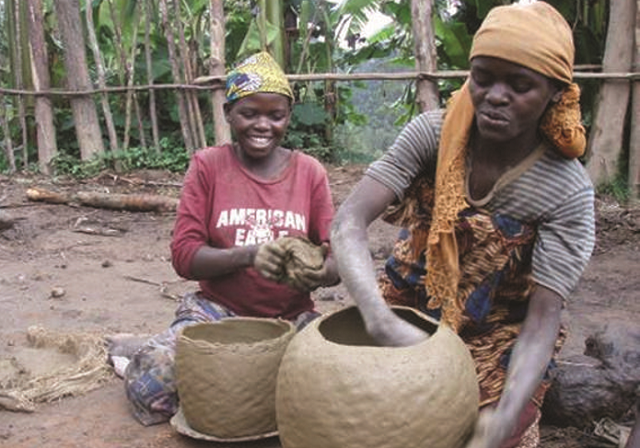
Cecile Nyirabahutu, one of the leaders, wants the government to give the areas inhabited by Twa equal access to resources as other parts of Rwandan.
She says the Twa’s biggest challenge is lack of access to information. She says the need better houses and opportunity to own land.
“Let the government give us an office so that we can also be collecting information about the challenges we face,” she says, “Historically Marginalised People do not have shops not even selling something that can lead to development because we have no land and no ownership.”
She says regarding education, although the government started the nine years basic education programme many Twa children are left out because of their extreme poverty.
“The children have no clothing, no utensils, and hunger remains a stumbling block. The youth do not understand government programs yet they are the leaders of tomorrow.
“We live in isolation and high discrimination, we call upon the government of Rwanda to support us more, we need more than help for the youth to be productive and also for the community to stop discriminating us,” she says.
The historically marginalized People, as Batwa are called, continue to be stigmatized despite the government efforts to ensure they are more integrated into all facets of life in modern Rwandan.
Historically, the Batwa live mainly on the inaccessible fringes of Volcanoes Forest. Here they depended solely on the forest for subsistence. They spent a lot of their time inside the forest gathering fruits, game meat, and wild honey.
Their lives where suddenly shattered in 1980 when a new law declared the activities on which they depended for a livelihood illegal. Under the law, the forest became a protected area and the Twa community members were no longer allowed to hunt animals or gather plant resources.
Due to the new government policies, these communities were forced to leave the forest. Since then they have found difficulty in adapting to new life, and have continued to live in isolation and extreme poverty. Many practice low income activities like pottery and hunting.
For them, the forest was the sole source of their livelihood as most of them did not own land when they were evicted from the forest.
Various reports on the Historically Marginalised People recognise them as living in some of the poorest living conditions in Rwanda with very limited access to basic needs.
After being forced to leave their traditional homeland, they started lacking resources which is leading to poverty because they had no other ways for survival. This brings them more isolation as their ways of living are far different from other communities which they regard to be lack of resources and extreme poverty.
****
editor@independent.co.ug
 The Independent Uganda: You get the Truth we Pay the Price
The Independent Uganda: You get the Truth we Pay the Price





